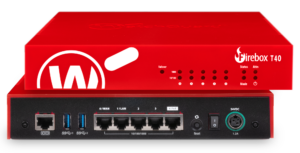You may have heard about firewalls at some point but, unlike anti-virus, the name doesn’t really explain what it does. Firewalls are a really important element of your home and business IT security.
Today we’re going to look at what firewalls are, how they work and why they are such an important element of your IT security.
What is a firewall?
- A firewall is a system that acts as a layer of protection between your network and the wider internet. It filters incoming and outgoing network traffic based on a set of rules that are designed to keep you safe. It’s your first defence when it comes to defending against viruses, malware and hackers.
- It works by looking at incoming and outgoing data packets. Data packets are just small chunks of data. The firewall will then judge whether it should allow or block the data packet based on a set of rules.
- If your network or router was a nightclub, the firewall would be the bouncer!
- Firewalls generally come as a part of anti-virus software products like Norton or Bitdefender, but there are many other forms a firewall can take depending on the environment and network they are protecting.
- For example, a typical home user will have a firewall built into their internet router and a software firewall installed on their device. On the other hand, a business will generally have a hardware-based UTM system (more about those next!) with a physical firewall that protects all devices connected to that particular network.
Firewalls in a business
Firewalls in a business are a lot more heavy-duty than personal firewalls and generally come in the form of a hardware-based UTM (Unified Threat Management) system.
What is a UTM system?
- A UTM is a physical piece of hardware within your IT system.

- It allows for more control over your firewall, meaning your network administrator can tailor your firewall to the business’s needs. For example, if your network was consistently getting people from another country attempting to access your system, your network administrator could create a rule where your firewall automatically prevents all traffic from that country.
- A UTM firewall will also integrate other protection services such as Intrusion Prevention Technology and Virus Scanning, so even if traffic gets through, it then goes through a thorough cycle of security scans before it gets to your device.

- The purpose of a business-grade firewall is not only to protect devices on the network – but also the data. Businesses will have sensitive data within their network such as customer data, which under the strict regulations of GDPR, must be kept safe. A Unified Threat Management system is a good step to help you achieve compliance.
Got more questions about firewalls, UTMs and your IT security? Give us a call on 01553 692727 and press option 3 to find out how we can help you!
